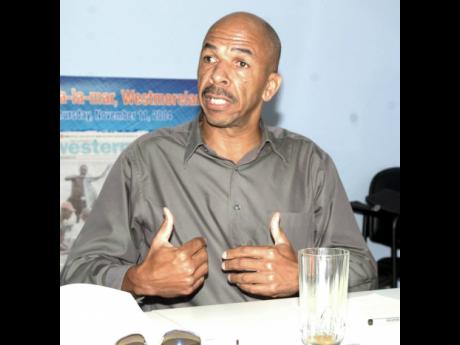New wave of resistance to Cockpit Country mining
WESTERN BUREAU:
Residents of Stewart Town and surrounding communities in Trelawny remain resolute in their objection to mining in the section of the Cockpit Country known as Special Mining Lease (SML) 173, which is being targeted by Noranda Bauxite Jamaica.
In a town-hall meeting at the Webb Memorial Baptist Church in the community on Thursday, residents gave notice of environmental devastation if the lands were made accessible to miners.
“The land is where we get our food, and when these lands are mined out in the next 15 to 30 years, what is going to become of those of us who live off the land,” asked a resident.
“I am imploring Prime Minister Andrew Holness to listen to us and withdraw this licence before this matter becomes confrontational.”
The Government recently stated that it would not be withdrawing the controversial mining licence granted to Noranda, sparking outrage and resistance from environmentalists and residents, who have threatened to block the mining company.
The defined boundaries of the Cockpit Country have been disputed by government authorities and environmental lobbyists, who believe that SML 173, and several other swathes of west-central Jamaica, should be declared off-limits.
The town-hall meeting was moderated by broadcaster Archibald Gordon and featured panellists Dr Esther Figueroa, film-maker and environmental activist; Hugh Dixon, executive director of the South Trelawny Environmental Agency; and Dr David Smith, coordinator of the Sustainable Development Unit at The University of the West Indies, Mona.
Ecologically unique
In speaking to the special status of the Cockpit Country, Smith said that the region, along with the Blue Mountains, is one of Jamaica’s most ecologically unique areas. The Cockpit Country produces 40 per cent of the nation’s domestic water and is rich in untapped medicinal plants.
“A key resource is water. Scientists have not been able to find a substitute for water. Every hotel in western Jamaica uses water which originates in the Cockpit Country,” said Smith, who wants Jamaica’s Mining Act of 1947 changed to reflect 21st-century thinking.
Dixon, who has been a key spokesperson for the anti-mining activists, the Cockpit Country Warriors, says the area is ideally suited for the emerging local medicinal marijuana industry, as well as ecotourism.
“There is fauna which is sustainable and, if left, will be around long after the 30 years of bauxite,” said Dixon, who believes the region must be protected at all cost.
“It is bauxite now, but later it will be our limestone, which is the most valuable in the world,” he added.

